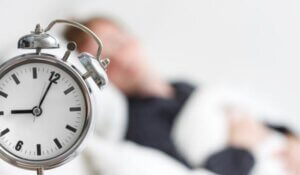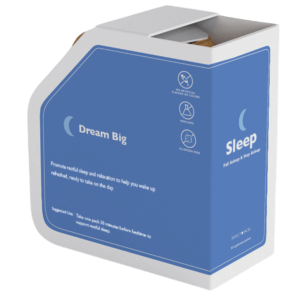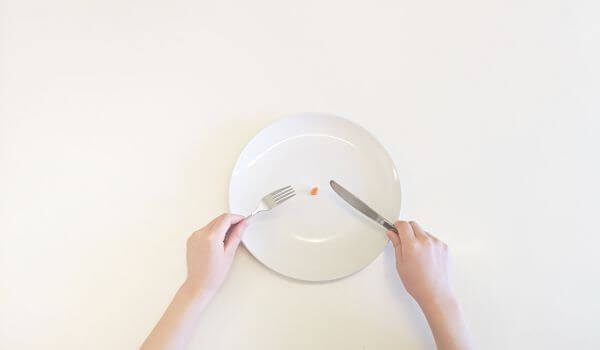 Life is so much better after a night of restful sleep. We feel much more well-equipped to tackle challenges the day throws at us when we’ve had some quality zzzzz’s. Conversely, a night of poor-quality sleep can leave us cranky, irritable, and ready to snap. The answer to feeling tired during the day isn’t in a bottomless coffee pot at arms-reach. It may be a matter of adjusting a few simple behaviors before bed.
Life is so much better after a night of restful sleep. We feel much more well-equipped to tackle challenges the day throws at us when we’ve had some quality zzzzz’s. Conversely, a night of poor-quality sleep can leave us cranky, irritable, and ready to snap. The answer to feeling tired during the day isn’t in a bottomless coffee pot at arms-reach. It may be a matter of adjusting a few simple behaviors before bed.
While researching this subject, I came across the term “sleep hygiene” on the SleepFoundation.org website. I had never heard the term “hygiene” in relation to sleep. A bit of further reading showed how sensible it is to treat the order, organization, and cleanliness of the environment in which we sleep as important in the same way as we hold the order and cleanliness of a bathroom or kitchen to be essential to good general health.
Another term I learned from the SleepFoundation website’s content about sleep hygiene was “revenge bedtime procrastination,” and the moment I read that one, I understood the complaints that my partner had been making recently about my sleep patterns, or rather, my going-to-sleep patterns. I usually tuck myself into bed with a book or magazine to read, justifying this as a way to calm down and get my head into sleep mode. Instead, bedtime procrastination is a “decision to sacrifice sleep for leisure time driven by a daily schedule lacking in free time. For people in high-stress jobs that take up the bulk of their day, revenge bedtime procrastination is a way to find a few hours of entertainment even though it results in insufficient sleep.”
The key thing I read on the foundation’s website was:
- Sleep hygiene refers to both your sleep environment and behavior.
- Poor sleep hygiene can negatively impact both sleep quantity and quality.
- Good sleep hygiene includes setting a strict sleep schedule, following a bedtime routine, forming healthy habits, and optimizing your bedroom for sleep.
- Sleep hygiene alone will not cure sleep problems, so talk to a doctor about concerns.
Good sleep patterns mean having good habits, behaviors, and a comfortable, hygienic environment to promote restful sleep. Many sleep problems come from years of poor sleep hygiene. However, in most cases, making simple changes to your daily routine and mindset can help you achieve better sleep patterns. With Sleep Awareness Week just around the corner, let’s look at how we can do this.
Listen to your body clock

Following a consistent schedule helps the body adjust, making it easier to feel sleepy at the same time each night. If someone feels tired, they should go to bed instead of ignoring it. However, going to bed without feeling tired can lead to bad habits, like lying awake for too long. Getting sunlight in the morning can also help, as early light exposure helps regulate the body’s internal clock.
Create a calm sleeping environment
Getting a full eight hours of good sleep is easier when the bedroom is calm and cozy. Some ideas to improve this include setting and ideal room temperature. The ideal room temperature is usually between 62 and 66°F (17 and 19°C), which is comfortable for most people. The room should be kept dark for restful sleep. Shift workers who sleep during the day might benefit from using an eye mask. When dealing with noise like barking dogs or loud neighbors, it’s helpful to use earplugs to block out the sound.
The bedroom should only be used for sleeping and personal time. If someone uses their bed for other activities, like watching TV or chatting with friends, their brain might start to link the bedroom with being active instead of relaxing. And if possible, invest in a good mattress and pillow that feel comfortable and give the right amount of support.
Avoid nicotine and alcohol
Some smokers believe cigarettes help them relax, but nicotine is actually a stimulant. It can raise heart rate and blood pressure, which might make it harder to fall asleep. To improve sleep, it’s best to avoid smoking, especially in the two hours before bedtime.
Alcohol is a type of drug that slows down the nervous system. While having a drink before bed might make it easier to fall asleep at first, it can disrupt sleep patterns and leave a person feeling sleepy in the morning. It can also cause them to wake up often, like needing to use the bathroom at night.
Relax your mind
For people who often worry before bed, setting aside 30 minutes earlier in the day to focus on their worries might help. Later, when it’s time to sleep, they can remind themselves that they’ve already focused enough on their daily worries.
Relaxation exercises can help calm the mind and body. For example, a person might focus on relaxing each part of their body, starting at their toes and moving up to their head. They could also picture a peaceful scene, pay attention to the steady rhythm of their breathing, or repeat a calming word or phrase.
Medications and supplements

If someone is suffering from sleep apnea, relatively new research has shown that tirzepatide, a diabetic and weight loss drug, could be effective in treating it. This medication has recently been approved for this purpose by the FDA.
Some individuals may benefit from taking natural supplements like The Sleep Pack to aid in sleep, particularly one that contains melatonin, though it is important to consult with a healthcare professional before starting any new supplement regimen.
Therapy can also be helpful in addressing underlying issues that may be contributing to insomnia. Cognitive Behavioral Therapy for Insomnia (CBT-I) is a type of therapy that can target sleep problems. It focuses on identifying and changing negative thoughts and behaviors that can disrupt sleep.
FAQs
How many hours of sleep is considered restful sleep?
Adults should aim for 7-9 hours of restful sleep each night. Anything less than that can be considered sleep deprivation and may lead to negative effects on physical and mental health.
Why do I keep waking up in the middle of the night?
Waking up in the middle of the night is a common issue for many people. There are several possible reasons for this, such as stress, medication side effects, sleep apnea, or an underlying medical condition. It is important to consult with a healthcare professional to determine the cause and find appropriate treatment.
How do I know if I slept well?
A few signs can indicate whether or not you slept well. These include waking up feeling refreshed and rested, not experiencing any disruptions in sleep, and being able to easily fall asleep when going to bed.
What does sleep deprivation feel like?
Sleep deprivation can have a variety of effects on both physical and mental health. People who are sleep-deprived may experience difficulty concentrating, irritability, mood swings, increased appetite and weight gain, and a weakened immune system. Long-term effects could even include psychosis.
When should I stop drinking water before bed?
It is generally recommended to stop drinking water at least an hour before bedtime. This allows time to process and eliminate excess fluids and reduces the need for bathroom trips during the night that can disrupt good sleep patterns.
















